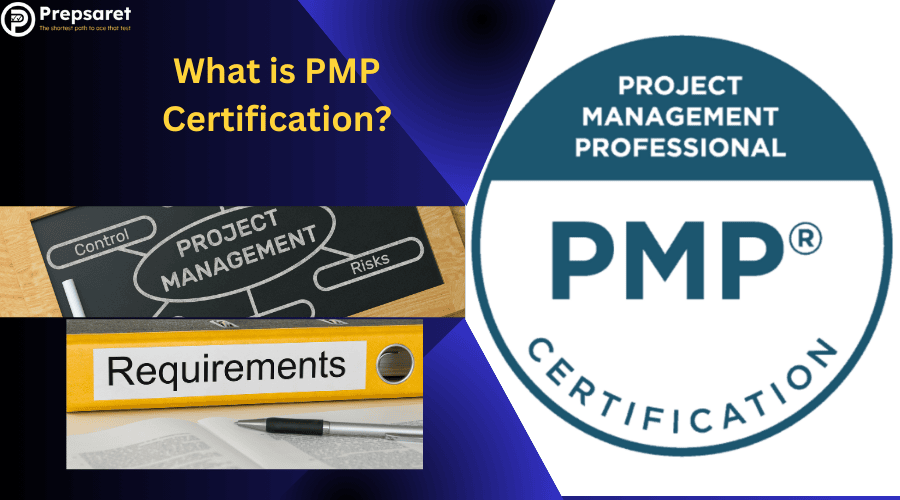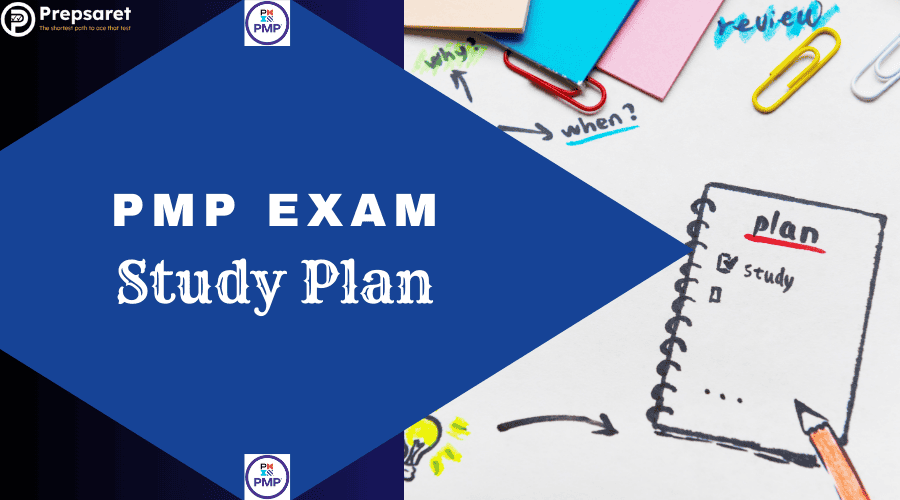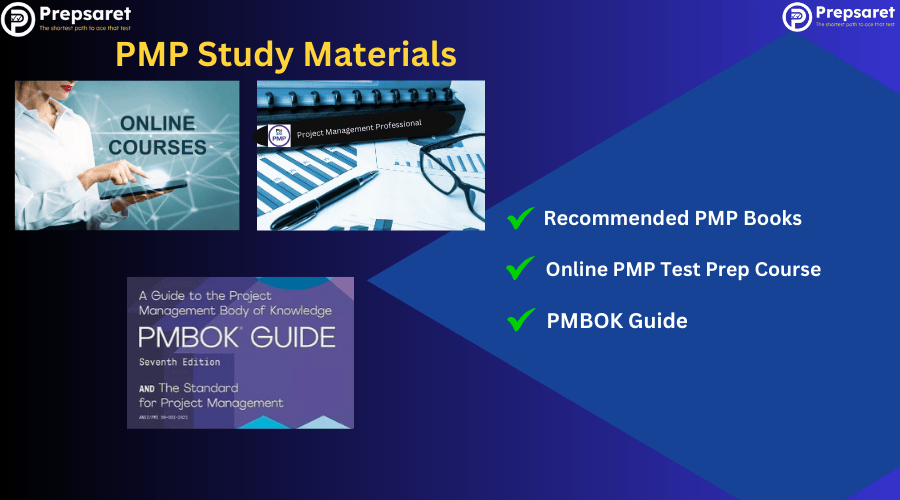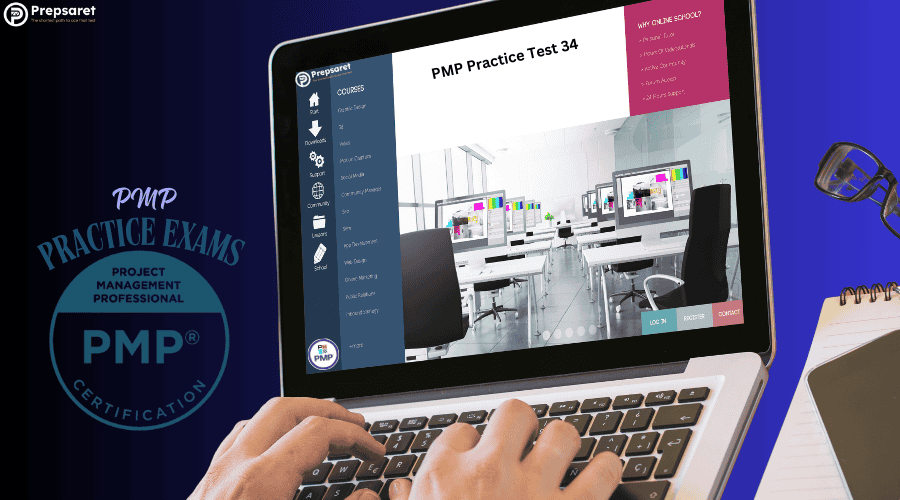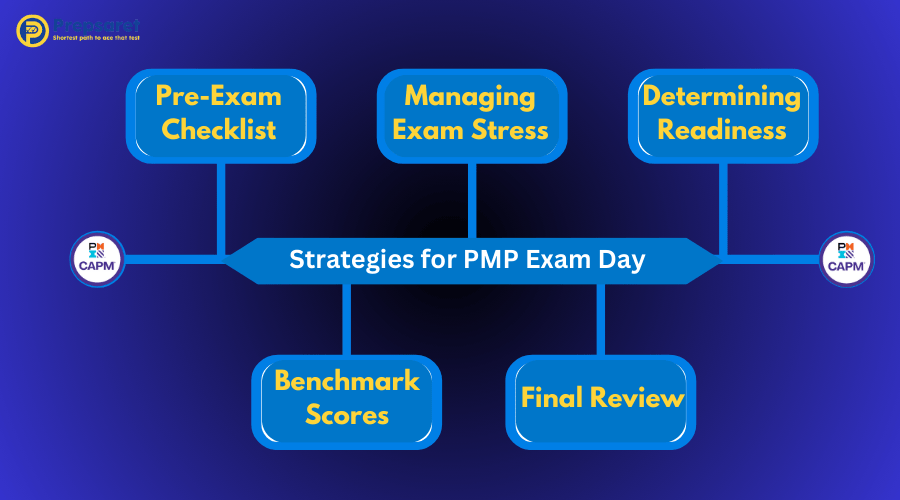Wondering how to prepare for the PMP exam effectively? This guide will help you navigate the process, from understanding the certification, creating a study plan, to using key resources. Follow these steps to boost your confidence and chances of passing the exam.
Key Takeaways:
- Achieving PMP certification enhances career growth and project management proficiency, connecting professionals to a global network and offering recognition in the industry.
- Crafting a tailored study plan with realistic timelines and utilizing various resources like study groups, flashcards, and practice exams is key to effective PMP exam preparation.
- Post-exam, updating your resume and preparing for job interviews will maximize the benefits of your PMP credential, showcasing your commitment and advanced skills in project management.
Understanding the PMP Certification
The Project management professional (PMP) certification is considered a benchmark for project management proficiency globally. It signifies that you have the knowledge and skills to effectively lead projects and deliver results. For many professionals, obtaining the PMP certification is a crucial step in their career growth journey.
Understanding the PMP certification involves knowing what it entails and why it’s important. This credential, offered by the Project Management Institute (PMI), is a testament to your ability to manage projects successfully.
The following subsections explore what the PMP certification is and its significance.
What is PMP Certification?
The PMP certification is a globally recognized project management certification that has seen a growing interest over the years. Preparing for the PMP exam is no small feat; it typically requires extensive preparation over many months. The PMBOK® Guide, now in its 7th edition, serves as the primary resource for exam preparation.
In addition to the PMBOK Guide, participating in discussion forums can provide real-time support and answers to specific queries from experienced practitioners. These forums facilitate knowledge exchange among peers and help clarify complex topics related to the PMP exam.
Importance of PMP Certification
Holding a PMP certification enhances your ability to successfully deliver projects by adhering to structured management methodologies. It connects professionals to a global network, providing extensive opportunities for networking and collaboration.
Moreover, the certification enhances career prospects, providing recognition and advancement opportunities in project management. Access to a community of like-minded professionals allows certified individuals to share insights and strategies for ongoing professional development.
Prospective project managers often spend considerable time preparing for the PMP exam date, as passing this certification is a significant milestone in their professional development.
Related post: Five Reasons Why Employers Want PMP Certification
Crafting Your Study Plan
Creating a tailored PMP exam study plan that considers individual learning preferences can enhance exam readiness. It’s advisable to study one knowledge area per week and one process each day. Utilizing a mix of study resources such as books, online courses, and practice exams can enhance understanding and retention.
Engaging in interactive learning boosts retention and comprehension among PMP candidates. Collaborative learning in study groups enhances motivation and accountability among members. Engaging with peers fosters a deeper understanding of complex topics through discussion and shared experiences.
Setting a Realistic Timeline
Two to three months of dedicated study time is often sufficient for many candidates to prepare effectively for the PMP exam. A typical preparation timeframe ranges between 70 to 85 hours, which may extend depending on individual prior knowledge.
Setting a realistic timeline for studying is essential for balancing work, personal commitments, and effective exam preparation. Tailoring your study timeline to fit your work and life responsibilities ensures a balanced approach to exam preparation.
Identifying Weak Areas
Experienced professionals may face rusty study skills due to years without studying. A key challenge in preparing for the PMP exam includes dealing with the inputs, tools, techniques, and outputs (ITTOs) of each process.
Identifying weak areas early in your study plan can help you focus your efforts where they are needed most. Regularly reviewing practice questions and seeking feedback from study groups can aid in pinpointing these areas.
Essential Study Materials
Carrying your PMP study materials wherever you go can maximize learning opportunities. Exam simulators allow candidates to practice with a variety of questions and assess their performance across different topics.
Study groups provide a platform to discuss and clarify complex concepts, enhancing understanding. Effective study groups benefit from members using the same core training materials for consistency in learning.
1. The PMBOK Guide
The PMBOK® Guide serves as the foundational text for PMP exam preparation, covering essential project management processes. Understanding the PMBOK Guide is crucial for grasping the project management processes evaluated in the PMP exam.
Last-minute reviews should focus on reinforcing key concepts and major themes covered in the PMBOK Guide to ensure comprehensive understanding.
2. Recommended Books
Rita Mulcahy is one of the top authors recommended for PMP exam preparation. Additionally, Andy Crowe is also highly regarded in this area. Books by Rita Mulcahy emphasize practical applications and exam strategies essential for PMP preparation.
These books provide valuable insights and tips that can make your PMP exam preparation more effective. They break down complex concepts into manageable sections, making it easier to understand and retain the information.
3. Online Resources
Online Prepsaret’s PMP test prep courses are generally less expensive than in-person workshops, making them a more accessible option for candidates. Before committing to an online course, it’s essential to compare options and read testimonials to ensure you make an informed choice.
The author paid $70 USD for their online training courses, highlighting the affordability of online resources. Dedicate time regularly to review key concepts and revise difficult topics before the exam to improve retention and understanding.
4. Flashcards
Flashcards are a recommended tool for preparing for the PMP exam, enhancing recall and retention. Flashcards can be downloaded, printed, or created by candidates to suit their study preferences. Creating your own flashcards can be particularly helpful in understanding key concepts and terminology.
Leveraging PMP Practice Exams
Regularly taking practice exams throughout the study process helps in pinpointing areas that require more focus. Practice exams can effectively highlight weak points, allowing candidates to concentrate their efforts on those specific areas.
You should aim for a consistent score of 85% or higher in practice tests to determine your readiness for the exam. Consistently scoring 75% or higher on at least three practice tests indicates readiness for the PMP exam.
Mock Exams
The PMP exam includes various question types: complex situational, short situational, formula-based, knowledge-based, and interpretational questions. The PMP exam consists of 200 multiple-choice questions.
PMP Situational questions emphasize the importance of identifying relevant content while ignoring insignificant information. Continuous practice with PMP mock exams improves your ability to analyze different conditions and situations in interpretational questions.
Exam Simulators
PMP exam simulators are online practice exams like that mimic the actual PMP exam format. The purpose of PMP exam simulators is to gauge your level of preparation by replicating the exam environment.
Exam simulator offer the flexibility to take practice tests at your convenience, fitting into different schedules. This method helps you get familiar with the exam interface and builds your confidence for the actual test day.
Interactive Learning Methods
Accessing online forums can provide valuable insights and experiences from other PMP candidates and certified professionals. Online platforms offer interactive learning resources, including video tutorials and practice questions for PMP exam prep.
Engaging with online study communities can enhance understanding through shared resources and collaborative study. Flashcards aid in recalling key concepts and terms for the PMP exam. Engaging ways of learning can immensely improve comprehension and retention for the PMP exam.
1. Study Groups
Joining study groups aids in collaborative learning, addressing queries, and resource sharing. Members of study groups can share diverse perspectives and experiences, enriching the learning process.
Smaller study groups allow for closer interaction and personalized support, improving the learning experience. This collaborative environment fosters motivation and accountability among members.
2. Discussion Forums
Discussion forums serve as vital platforms for candidates to ask questions and seek clarification on complex topics related to the PMP exam. Active participation in these forums allows candidates to gain diverse perspectives and richer understanding, which is especially useful for complex project management concepts.
Joining study groups fosters a collaborative learning environment, where members can share insights, resources, and support one another in the PMP exam preparation process. Utilizing both discussion forums and study groups enhances the overall study experience, reinforcing learning through collaboration and interaction with peers.
Strategies for Exam Day Success
Full practice exams can significantly enhance a candidate’s confidence and understanding of the exam structure. Taking full-length practice exams can help familiarize you with the timing and pressure of the actual exam, reducing anxiety and improving performance.
Utilizing the two 10-minute breaks during the exam can help in managing stress and maintaining focus. Effective breathing techniques can also help lower stress levels and maintain concentration during the exam.
1. Pre-Exam Checklist
Gather all necessary materials, including ID and exam confirmation, the night before the exam. Familiarizing yourself with the test center or your testing setup can eliminate uncertainties on exam day.
A distraction-free testing environment is vital for maintaining focus during the exam. A well-prepared checklist can help ensure you have everything you need and reduce last-minute stress.
2. Managing Exam Stress
Completing PMP practice exams helps to reduce anxiety by familiarizing candidates with the timing and pressure of the actual exam. Having a systematic plan for exam day can alleviate pre-exam anxiety and boost confidence.
During the final review, focus on key concepts and avoid learning new material to reduce stress before the exam. Practicing deep breathing techniques can also help manage anxiety and improve concentration during the exam.
3. Determining Readiness
Aim for specific scores on sample tests, known as benchmark scores, to judge your exam readiness. These benchmark scores should reflect a level of proficiency that aligns with passing the actual PMP exam.
Implement last-minute review tips to strengthen your grasp of core concepts and technical knowledge. Ultimately, assess your overall confidence along with your scores to decide if you are ready to take the PMP exam.
4. Benchmark Scores
PMI® does not provide a specified passing score for the PMP exam, but aiming for at least 85 percent correct answers on sample questions is essential for readiness. Completing multiple mock exams can help identify knowledge gaps and reinforce learning, allowing for targeted study and confidence building.
Scoring consistently above 85% on practice tests is considered a strong indicator of your readiness for taking the PMP examination. Determining readiness for the PMP exam is crucial for your success and should involve careful assessment of practice test scores.
5. Final Review
Assess your readiness for the PMP exam by evaluating your practice test scores and your confidence level in each knowledge area. Aim for benchmark scores on sample tests that indicate your preparedness for the real exam.
Use PMP practice exams to gauge your knowledge and identify areas that need further review before the exam. Complete multiple mock exams to familiarize yourself with the exam format and build confidence.
Prepare a checklist of essential items needed for the exam to ensure nothing is forgotten. Implement techniques to manage stress before and during the exam, preserving focus and maintaining calmness. Adopt strategies for exam day success including time management and knowing how to tackle difficult questions.
Life After Passing the PMP Exam
PMP certification can lead to increased job prospects as many organizations prioritize certified candidates for project management roles. Professionals with PMP certification typically earn about 25% more than their non-certified counterparts. Achieving PMP certification can significantly improve job prospects and lead to higher salary potential for project managers.
Upon passing the PMP Exam, you will receive a digital badge immediately, but the physical certificate may take 6-8 weeks to arrive. Updating your resume and preparing for job interviews are essential next steps.
Updating Your Resume
It’s important to showcase your PMP achievement by updating your resume, business cards, and online profiles with your new credentials. Incorporating your PMP certification in the professional summary of your resume can significantly enhance its impact.
Including the PMP designation in your name online enhances your professional visibility to potential employers. Prepare to discuss your PMP certification during interviews, as it demonstrates your commitment to project management excellence. Use your PMP certification as a leverage point to highlight your skills and readiness for advanced project management roles.
Preparing for Job Interviews
Preparing for job interviews is a crucial step after passing the PMP exam as it helps leverage your new qualification. Practice answering common interview questions related to your PMP certification and project management experience.
Highlight your PMP certification and how it has equipped you with advanced project management skills. Demonstrating your ability to apply these skills in real-world scenarios can set you apart from other candidates.
Mastering the PMP exam requires a strategic approach, starting with understanding the certification and its importance. Crafting a personalized study plan, utilizing essential study materials, and leveraging practice exams are critical steps in your preparation journey.
Interactive learning methods and strategies for exam day success can further enhance your readiness. Finally, determining your readiness through benchmark scores and a final review ensures you’re prepared to pass the exam.
After achieving PMP certification, updating your resume and preparing for job interviews will help you capitalize on this significant career milestone.
Read also: What Happens if I Don’t Pass the PMP on My First Attempt?
Frequently Asked Questions
Can You Self-Study?
Yes, you can self-study effectively by utilizing various resources such as books, online courses, and educational videos.
Establish a structured study plan with specific goals and timelines. Use active learning techniques like summarizing information, practicing problems, and teaching concepts to others.
Is 70% Enough to Pass?
In most educational institutions, a score of 70% is typically considered a passing grade, often equivalent to a C. However, specific requirements may vary by school or program.
While a 70% suffices to pass, some courses, especially those related to a major, may require higher grades for credit or to maintain academic standing. Therefore, while 70% is generally enough to pass, striving for higher grades is advisable for overall academic success.
Is 2 Months Enough to Study for PMP?
Studying for the PMP exam in two months is feasible, especially for candidates with prior project management experience. A structured study plan, dedicating around 100-150 hours, is essential.
Focus on understanding key concepts and utilizing resources like the PMBOK guide.
Consistency in daily study sessions, including mock tests, enhances retention and confidence. Many successful candidates have achieved certification within this timeframe with disciplined preparation and commitment.
What is the PMP Certification?
The PMP certification is your gateway to mastering project management, showcasing your expertise to employers worldwide. Achieving this credential can significantly enhance your career opportunities and professional credibility.
How Long Should I Study for the PMP Exam?
To effectively prepare for the PMP exam, aim for 70 to 85 hours of study over two to three months. Stay consistent and you'll be well on your way to success
What Study Materials are Essential for PMP Exam Preparation?
To ace the PMP exam, make sure you have the PMBOK Guide, Rita Mulcahy's recommended books, and access to practice exams and simulators. These resources will equip you to succeed!
How Can I Manage Stress on the Exam Day?
To effectively manage stress on exam day, familiarize yourself with the exam format through practice tests, take breaks during the exam, and use deep breathing techniques to calm your nerves. You’ve got this!
What Should I Do after Passing the PMP Exam?
Congratulations on passing the PMP exam! Now is the time to update your resume and online profiles with your new credentials and prepare for job interviews to enhance your career opportunities.
Start Your PMP Exam Preparation Today!
Achieving PMP certification starts with the right resources. Prepsaret provides top-quality practice exams and comprehensive courses designed to support you throughout your journey.
Take the first step toward project manager success by beginning your preparation with Prepsaret today and move closer to achieving your project management goals!


